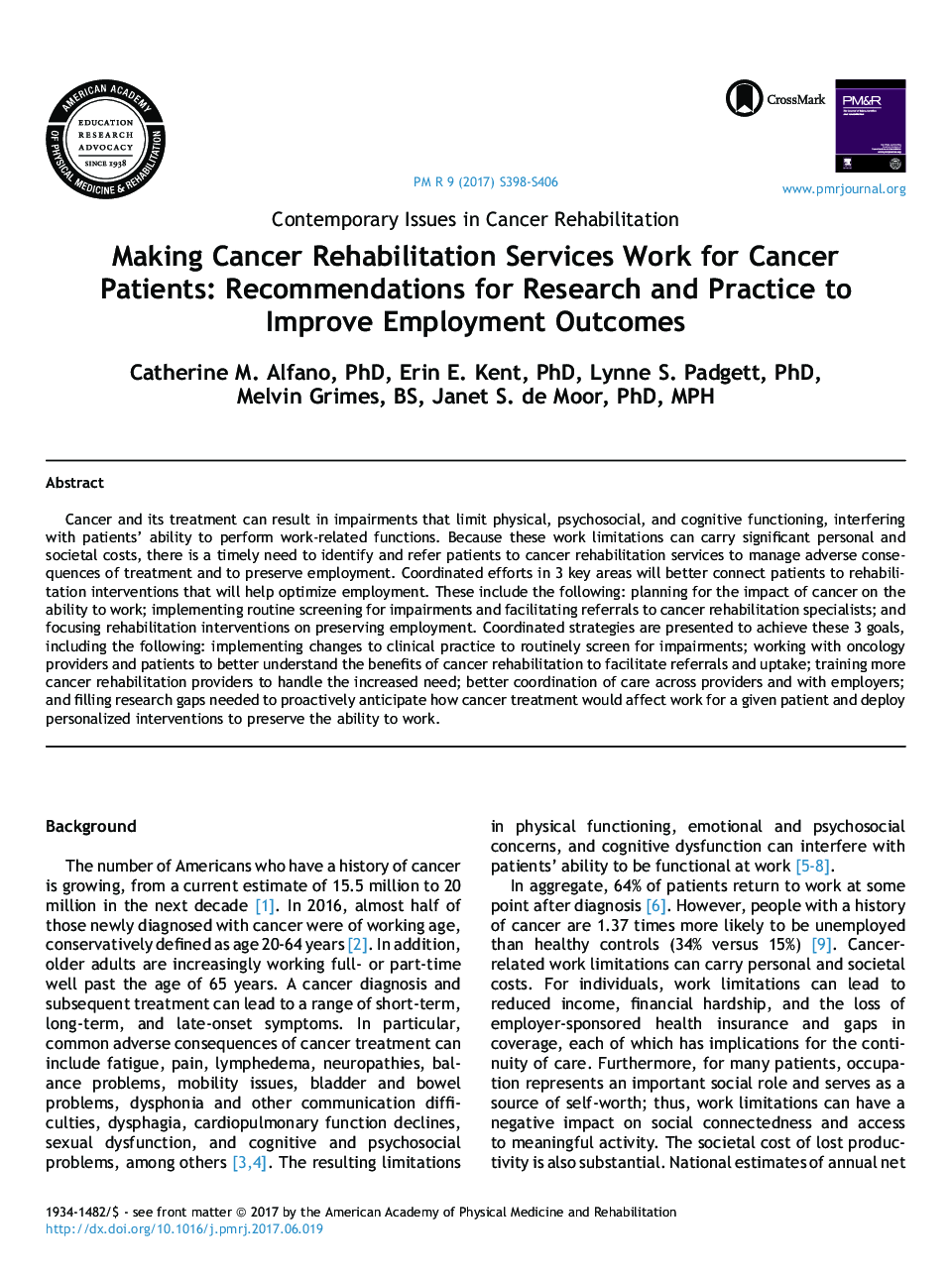| Article ID | Journal | Published Year | Pages | File Type |
|---|---|---|---|---|
| 5574941 | PM&R | 2017 | 9 Pages |
Abstract
Cancer and its treatment can result in impairments that limit physical, psychosocial, and cognitive functioning, interfering with patients' ability to perform work-related functions. Because these work limitations can carry significant personal and societal costs, there is a timely need to identify and refer patients to cancer rehabilitation services to manage adverse consequences of treatment and to preserve employment. Coordinated efforts in 3 key areas will better connect patients to rehabilitation interventions that will help optimize employment. These include the following: planning for the impact of cancer on the ability to work; implementing routine screening for impairments and facilitating referrals to cancer rehabilitation specialists; and focusing rehabilitation interventions on preserving employment. Coordinated strategies are presented to achieve these 3 goals, including the following: implementing changes to clinical practice to routinely screen for impairments; working with oncology providers and patients to better understand the benefits of cancer rehabilitation to facilitate referrals and uptake; training more cancer rehabilitation providers to handle the increased need; better coordination of care across providers and with employers; and filling research gaps needed to proactively anticipate how cancer treatment would affect work for a given patient and deploy personalized interventions to preserve the ability to work.
Related Topics
Health Sciences
Medicine and Dentistry
Orthopedics, Sports Medicine and Rehabilitation
Authors
Catherine M. PhD, Erin E. PhD, Lynne S. PhD, Melvin BS, Janet S. PhD, MPH,
